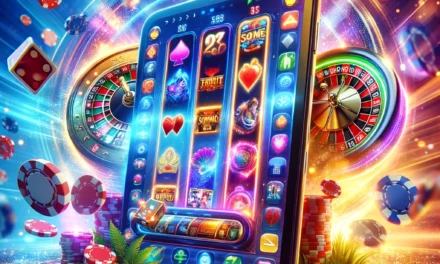
How RNG is Utilized in Gaming

Randomness plays a vital role in keeping games fresh, unpredictable, and exciting. Random Number Generation (RNG), the engine behind that randomness, is used in countless ways across genres. From spawning loot to determining battle outcomes, RNG serves as the invisible hand guiding many in-game systems.
What Is RNG?
RNG stands for Random Number Generator. It is a system that produces unpredictable outcomes within a predefined range. In gaming, RNG algorithms determine results that appear spontaneous: which item drops, whether an attack hits, or what card you draw. Hardware-based systems or pseudorandom code that mimics true randomness may generate these outcomes. Either way, the goal is to create dynamic and fair gameplay moments.
How RNG Works in Games
Most games use a pseudorandom number generator seeded with a specific value. This seed dictates the output of the algorithm, making the randomness predictable for debugging but still effectively random to the player. Game designers embed random number generators (RNGs) within mechanics that influence everything from AI behavior to environmental changes.
To balance the player experience, developers often manipulate the probabilities behind the scenes. They might apply “loot tables” with weighted chances or “pity systems” that increase odds after repeated failures, especially in gacha games.
Combat Systems
Many combat-based games rely on RNG to introduce unpredictability. In XCOM 2, every shot has a visible percentage to hit, but the actual result is decided by RNG, leading to tense moments where a 95% shot could still miss. Similarly, Fire Emblem: Three Houses calculates evasion, critical hits, and damage variance through layered RNG formulas, forcing players to weigh their decisions.
Loots and Item Drops
Loot systems often use RNGs to create excitement. RPG games like the Diablo franchise exemplify this with their randomly generated gear, where every sword, bow, or shield rolls with different stats. In Destiny 2, post-mission rewards are also governed by RNG, offering randomized perks and variations that keep players grinding for the perfect roll.
Cards and Deck Building
In digital card games, RNG simulates the randomness of a physical deck. Hearthstone draws cards from a shuffled deck and includes random effects in spells or minion summons. Slay the Spire builds each run around randomized card pools, relics, and enemy orders, making every playthrough unique but strategically consistent thanks to seeded RNG.
Gacha
Gacha and mobile RPGs use RNGs to determine the outcome of character or item summons. In Genshin Impact, players roll for characters or weapons with set odds, while pity systems boost chances over time. RNG in gacha games is directly tied to progression and monetization as it is usually the only access to in-game items that are not acquirable by just playing the game.
Gambling
Some games feature mini-games or gambling systems that rely entirely on RNGs. In The Witcher 3, Gwent card draws use digital shuffle mechanics. Red Dead Redemption 2 includes poker and blackjack minigames with RNG-powered hands and dealer logic that reflect real-world probability.
RNG vs. Provably Fair Systems
While RNG is a staple in traditional video games, the emergence of blockchain gaming has introduced a new concept: provably fair systems. These mechanisms also use RNG, but with an added layer of transparency. Each result can be independently verified by the player using cryptographic proofs. This verification system is especially useful in gambling and casino-style games like crypto craps, roulette, poker, slots, etc., where fairness must be guaranteed without centralized oversight.
Thoughts
RNG isn’t just a matter of chance. It’s a deliberate design tool that enhances unpredictability and engagement. Whether it determines a missed shot, a rare item, or a game-changing encounter, RNG influences how players experience every session. When used responsibly, it creates challenge, excitement, and the thrill of not knowing what comes next. For developers and players alike, random number generation (RNG) is a cornerstone of dynamic gameplay design.

























